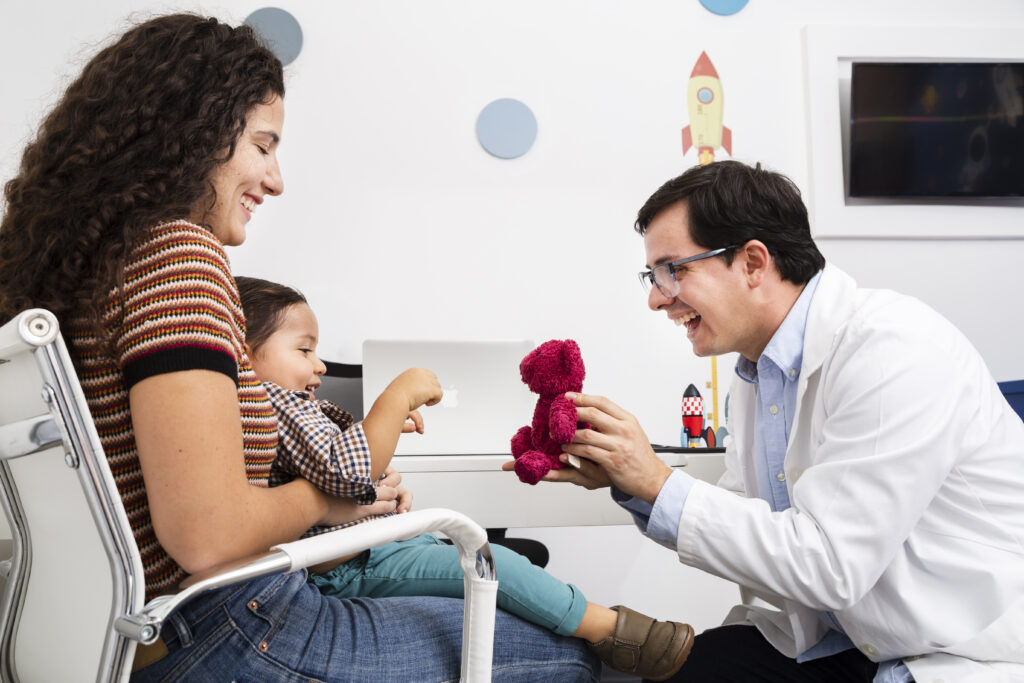Indeed, early diagnosis opens avenues of growth and development for a child. Perhaps an autism diagnostic assessment can offer the key toward ascertaining the child’s specific needs, strengths, and difficulties. The clarity in the assessment lies in how it opens up doors for early interventions, hence giving access to special support. The article will examine what takes place during a diagnostic evaluation for autism, why the process is important, and how it constructs better futures for the children and their families.
Looking for ABA Therapy in Minnesota? We provide personalized, evidence-based support for your child to create an environment where growth, learning, and lasting change can take place.
What are Autism Diagnostic Evaluations?
The diagnostic assessment for autism is the full-scale investigation that qualified professionals conduct to see if a child does or does not meet the ASD criteria. These assessments are complex, more complicated than mere screening, either with a developmental pediatrician, a psychologist, or a neurologist who focuses on the detailed aspects of communication, social interaction, behavioral patterns, and developmental history of a child.
The key components for such a review are generally as follows:
- Developmental history review: The developmental history from parents or guardians outlines early childhood developments in the form of developmental milestones and behaviors.
- Behavioral observations: Professionals will note the manner a child interacts, plays, communicates, and responds to various stimuli.
- Standardized testing: To be used include, but are not limited to ADOS-2, which stands for Autism Diagnostic Observation Schedule, and ADI-R, meaning Autism Diagnostic Interview-Revised.
- Parent and teacher input: Information from multiple settings helps to build a full picture of the child’s strengths and areas of concern.
It is a holistic process wherein diagnosis, if given, would be appropriate and properly based on a thorough understanding of the child’s strengths and weaknesses.
The Power of Early Detection
Probably the most significant single benefit brought about by diagnostic assessments is the possibility of early detection of the condition. Indeed, time and again, it has been proved that the earlier the diagnosis of autism, the better the long-term outcome. The brains of children who receive support at an age when they are still developing and flexible will adapt more easily to targeted interventions.
It provides an early opportunity for:
- Earlier access to therapy: This will also be an indicator that, after a clear diagnosis, some interventions like ABA, speech, and occupational therapy for such individuals can begin even earlier with the intention to accomplish these developmental achievements.
- Better planning of education through schools working in collaboration with the families to create an Individualized Learning Plan.
- Better Family Understanding: The program helps the parents or caregivers to understand a child’s behavior, the mode of communication, and the child’s emotional needs.
- Enhanced social and life skills: Other areas of early interventions include social communication and life skills, thus helping to equip the children both while at home and within the community.
That is to say, the earlier a diagnosis is made, the sooner such a child gets to receive support for his or her particular ways of learning and being in the world.
Why Do Autism Diagnostic Evaluations Matter?
They do more than just name the diagnostic tests for autism; they help educate the family. This is so that the parents may understand a diagnosis and make informed choices, hence becoming better advocates for their child’s needs.
Here is why these assessments are so important:
Clarity and Understanding: Most families come into an evaluation not knowing exactly what’s going on in their child’s communication, play, or behavior and are feeling quite uncertain. An evaluation provides clarity, turning concern into understanding and direction.- Accessibility of Services: A formal diagnosis will most often be required for accessing different types of support programs, therapies, and insurance coverage. This assessment is indeed the key to unlocking those resources: gaining access to ABA therapy, special education, or social skills training.
- Individualized Support Plans: No two children with autism are exactly alike. Diagnostic assessments fill in the details for an individual approach to therapy in the best possible ways that will meet the needs of each child.
- Empowered Families: Knowledge is power. A known diagnosis informs the family in ways best to support their child emotionally and practically and to create a home environment that celebrates progress, encourages growth, and instills confidence.
- Long-term planning: Besides immediate interventions, evaluations help families make plans for the future, either in terms of educational support, social development, or independent living goals.
What Families Can Expect Throughout the Process:
Knowing what to expect can make the process so much easier to handle, mainly because an autism diagnostic evaluation can be quite overwhelming.
1. Initial Consultation:
Mostly, all this begins after a referral or consultation by a pediatrician who feels concern about developmental issues. This is a time when the family can discuss observations and reasons for requesting an evaluation.
2. Full Assessment:
Professionals conduct interviews, observe the child, and perform standardized tests over one or more sessions. They may ask parents questions concerning the child’s communication, routine, playing habits, and social responses.
3. Multidisciplinary Input:
Often, psychologists may be joined by speech therapists and occupational therapists so as to assure completeness.
4. Feedback and Diagnosis:
A report is subsequently given to the family following an assessment, with findings and recommendations that may include diagnosis, suggested therapies, or educational guidance.
5. Follow-Up and Support:
That is not the end of assessment, but it is just the beginning of the journey toward ongoing support. These results may be used by families to link them with appropriate therapy providers, schools, and community resources.
Emotional Journey for Families:
Diagnosis for parents is deeply an emotional and sometimes transformative process. Moreover, though some welcome clarity with a sense of relief, other people may take some time getting used to this diagnosis. Both reactions are totally valid. What is important is recognizing that a diagnosis does not define your child; it helps unlock the best ways to support them. Many times, families find themselves reassured to find professionals who connect with them during an assessment with compassion and respect. Indeed, many providers reinforce the view that autism is not a limitation but rather a difference in how individuals perceive and interact with the world.
Building Brighter Futures Through Early Support:
The journey post-autism diagnostic evaluation is growth, learning, and empowerment. Early intervention means allowing children to progress with better enhanced communication skills, increased independence, and social integration. Parents also turn out confident advocates and partners in the progress of their child. Supportive therapies such as ABA, speech-language therapy, and occupational therapy become so vital in helping these children develop daily living skills and reach their full potential. Every big or small milestone becomes a time of joy when professionals and families come together.
Conclusion:
Autism diagnostic assessments are much more than evaluations; they are first steps toward comprehension, acceptance, and opportunity. Early insights of autism let families take informed action; early interventions endow children with life skills necessary for lifelong success. Each child deserves that chance to shine in his particular way. With proper evaluation, support, and care, families look forward to futures that are brighter, as growth, connection, and hope increase.






